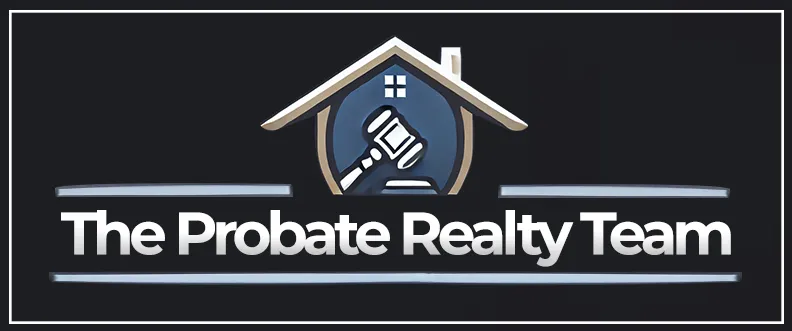As an executor of an estate, one of your main responsibilities is handling the debts and expenses tied to the estate, including any real estate involved.
This process can feel overwhelming, but understanding your duties and having a clear plan can make managing this responsibility smoother. Here’s a practical guide to help you navigate debt and expense handling during the probate process.
1. Understand Your Role in Managing Debts and Expenses
As the executor, you act as the estate's fiduciary, meaning you must manage the estate in a way that’s best for the beneficiaries while following legal and probate requirements. This includes:
[i] Identifying and Settling Debts: Ensuring all outstanding debts are paid using the estate’s assets.
[ii] Tracking Expenses: Keeping a detailed account of all costs associated with maintaining the property and administering the estate.
2. Create an Inventory of Debts and Expenses
Start by making a comprehensive list of all known debts and expenses. This includes:
[i] Outstanding Mortgage: Verify any mortgage or home equity loan tied to the real estate.
[ii] Property Taxes: Check for any unpaid property taxes and budget for upcoming payments.
[iii] Utility Bills and Maintenance Costs: Keep utilities running and set aside funds for basic maintenance to preserve the property's value.
[iv] General Debts: This can include credit card balances, medical bills, and any other debts in the decedent’s name.
3. Prioritize Debts
Not all debts are treated equally in probate. Understanding which to prioritize can prevent complications.
[i] Secured Debts: These debts, such as a mortgage or home equity loan, must be prioritized. Failure to pay could result in foreclosure or loss of property value.
[ii] Unsecured Debts: These include credit card balances and medical bills, which can be paid after secured debts.
[iii] Administrative Expenses: Costs associated with managing the estate, such as probate court fees, attorney fees, and necessary property maintenance, should also be prioritized.
4. Develop a Payment Plan
Create a payment plan to manage estate expenses and debts effectively.
[i] Use Estate Funds: Pay debts and expenses using the estate’s liquid assets first. If funds are limited, consider whether selling the real estate or other assets is necessary.
[ii] Avoid Using Personal Funds: As an executor, you should not pay estate debts out of your own pocket. Always use estate assets.
5. Maintain Property During Probate
Keeping the property well-maintained ensures it doesn’t lose value while the estate is settled.
Basic Upkeep: Budget for routine maintenance like lawn care and minor repairs.
[i] Emergency Repairs: Plan for unexpected issues, such as plumbing or roof repairs, that could otherwise impact the property’s condition
[ii] Insurance: Ensure that the property is covered under an appropriate insurance policy to protect against potential damage or liability.
6. Communicate with Beneficiaries
Keeping beneficiaries informed helps manage expectations and builds trust.
[i] Share Financial Updates: Let beneficiaries know about the estate’s debts, payment plans, and how these affect their inheritance.
[ii] Discuss Major Decisions: If you need to sell the property to cover debts, communicate the reasons clearly and involve beneficiaries in the conversation when appropriate.
7. Seek Professional Assistance
Managing debts and expenses can be complex, so don’t hesitate to seek professional help.
[i] Probate Attorney: Legal experts can ensure you follow probate laws and meet your fiduciary duties
[ii] CPA or Financial Advisor: These professionals can help you manage the estate’s finances and handle tax implications.
[iii] Real Estate Agent: If selling the property is necessary, a probate-experienced real estate agent can help you get the best value with minimal stress.
8. Be Aware of Insolvent Estates
If the estate’s debts exceed its assets, it is considered insolvent. Handling this situation requires extra care:
[i] Follow State Law: Work closely with a probate attorney to manage creditor claims in accordance with state regulations.
[ii] Notify Creditors: Inform creditors of the estate’s status and follow the proper process for settling debts in an insolvent estate.
9. Keep Detailed Records
Maintaining accurate records is crucial for transparency and accountability.
[i] Expense Logs: Track all payments made from the estate and document them with receipts or invoices.
[ii] Debt Documentation: Keep a record of all communications with creditors, including payment agreements and confirmations.
[iii] Court Filings: Ensure all reports and required documents are filed with the probate court on time.
Conclusion
Handling debts and expenses as a probate real estate executor can be challenging, but a clear plan and the right support can make the process manageable. Prioritize secured and necessary expenses, communicate with beneficiaries, and maintain detailed records to protect yourself and fulfill your role effectively.
If you need help, don’t hesitate to work with professionals, such as probate attorneys, CPAs, and experienced real estate agents, who can provide valuable guidance and assistance throughout the process.
